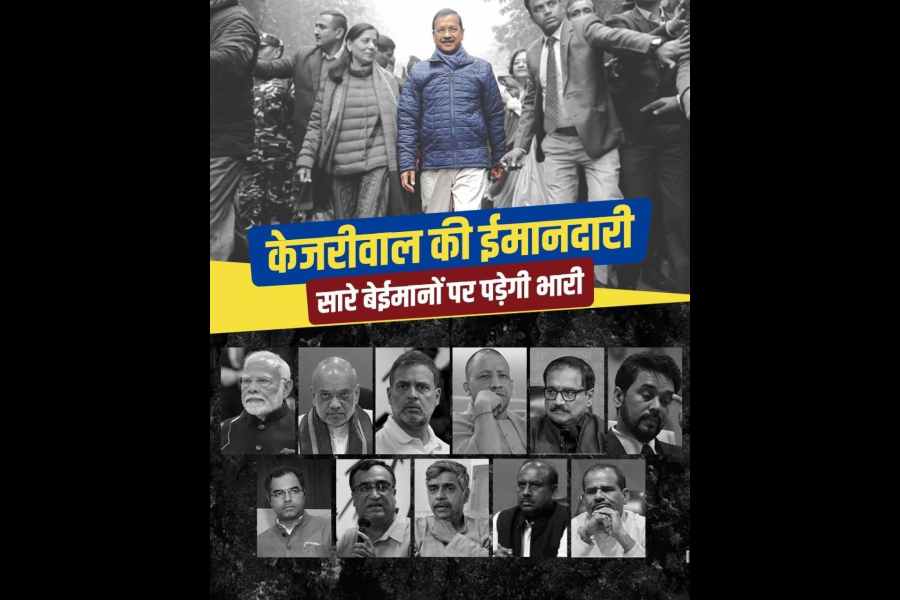Winter warmth
Sir — Winter is a tepid affair in Calcutta now and the lep and the kombol make people uncomfortable. Yet, a light sheet is not enough either. Perhaps this is why the market is flooded with plush comforters and dohars even though a perfect alternative is available in Bengal. The nakshi kantha is both cheaper than comforters and dohars and eco-friendly. Nakshi kanthas are traditionally made by stitching together layers of old sarees and other garments, which are available aplenty in the age of fast fashion. Instead of ending up in landfills, these clothes can save money and keep sheetkature Bengalis cosy in winters.
Chandana Roy, Calcutta
Track tragedy
Sir — At least 12 people were mowed down by a passing train and 10 others injured after they had to deboard the Pushpak Express, which was running on a parallel track, owing to rumours of a fire (“12 run over by passing train after ‘fire’ jump”, Jan 23). The railways authorities must have better coordination among themselves if such accidents are to be avoided in the future. Passengers too must be cautious about pulling the chain and take care not to mill around on a railway track.
Pratima Manimala, Howrah
Sir — The accident involving passengers of the Pushpak Express reveals lapses on the part of the Indian railways. Sparks and smoke from the wheels of a train point to poor maintenance.
P.V. Prakash, Mumbai
Sir — Panicked passengers of the Pushpak Express failed to communicate with the driver before getting off the train. The train operator, too, failed to check whether passengers were deboarding after the train came to a halt. He should have known a train was expected on the parallel track. Communication systems in trains need to be overhauled.
Jayanta Datta, Hooghly
Sir — The recent train accident highlights the need for regular checks of the condition of coaches.
Iftekhar Ahmed, Calcutta
Divided opinion
Sir — Sanjay Roy, the civic police volunteer convicted of raping a junior doctor at the R.G. Kar Medical College and Hospital, has been sentenced to rigorous life imprisonment (“Two directions”, Jan 22). The judgment went against the popular demand of death penalty for Roy, disappointing the victim’s parents and providing ammunition to politicians, including the chief minister of West Bengal, to keep the pot boiling on this matter. The death penalty defeats the goal of reforming a convict. It is encouraging that the court reached a verdict on the basis of available evidence and not popular sentiment. Politicians advocating for the death penalty are trying to avoid accountability for their shortcomings.
Jahar Saha, Calcutta
Sir — The editorial, “Two directions”, supports the life sentence given to Sanjay Roy. But the verdict raises concerns about the lack of stringent consequences for heinous acts. To prevent similar incidents and ensure the safety of women in their workplaces, it is imperative to ensure a swift trial process followed by severe punishment for rape convicts. Women should also be trained in self-defence to be able to fend for themselves.
Kiran Agarwal, Calcutta
Sir — The verdict in the R.G. Kar Medical College and Hospital case should be an opportunity to decide on a legal definition for the ‘rarest of rare’ criteria. It cannot be left to the personal judgement of individual judges. Moreover, the verdict does not mean that the case is closed. Institutional failings must be investigated and the government must introspect on how such incidents can be prevented in the future.
Manas Mukhopadhyay, Hooghly










